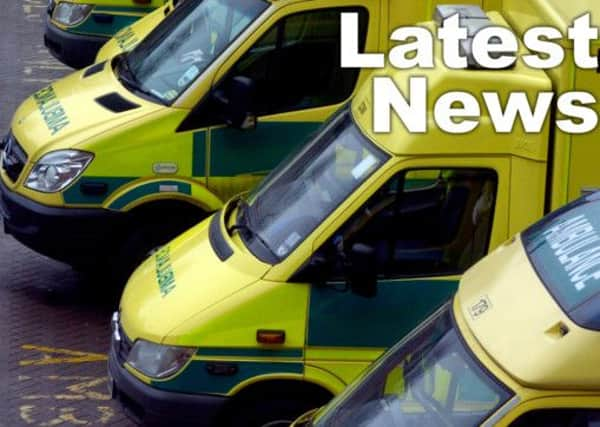Injured woman’s two-hour ambulance wait


Mr Stephenson actually tended to the woman who fell outside Pendle Hippodrome Theatre following our Leader-Times Stage Awards.
Mr Stephenson was a guest at the awards but then realised the woman had fallen and was badly hurt. She had a cut hand and had bashed her head. A 999 call for an ambulance was made by the theatre team. A male Accident and Emergency nurse from the Royal Blackburn Hospital, who had also been in the theatre, looked after her and recalled 999 to get them to get there.
Advertisement
Hide AdAdvertisement
Hide AdMr Stephenson and another man waited at the top of the street looking for the ambulance so they could direct it to the location where she was lying. But it was a long wait for her. After ages, the police assisted and she was carefully moved back into the Hippodrome.
It was more than one and three quarter hours before an ambulance arrived. She was then taken to Airedale Hospital to be treated for her head and hand injuries. She felt she was well looked after by the ambulance crew which came, and had excellent treatment at Airedale.
Mr Stephenson was concerned about the delay and on Monday raised the issue with North West Ambulance Service but has not yet had an answer. He said: “I was deeply concerned by the response time on Saturday night after the 999 call. I have worked with NWAS on a range of issues including response times a few years.”
But waiting for the ambulance to arrive he was worried. He said: “Even this is a complete controversial issue – it is so very concerning.”
Advertisement
Hide AdAdvertisement
Hide AdA spokesperson for North West Ambulance NHS Trust said: “We apologise for any distress caused to the patient while waiting for an ambulance.
When received, all 999 calls are given a priority rating, based on the information given by the caller, to make sure patients receive the most appropriate response and those with immediately life-threatening conditions are responded to first.
“Unfortunately, during busy periods, patients in non-life-threatening situations may have to wait longer for our help. “Callers are always advised to dial 999 again if the patient’s condition changes. We urge patients to contact us directly to discuss any concerns regarding the service.”